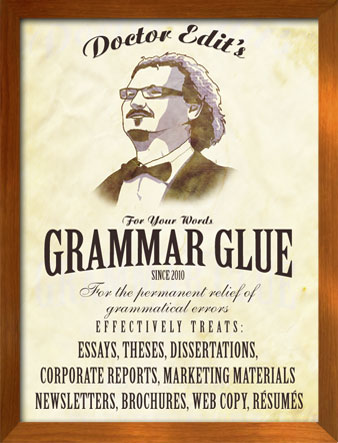Doctor Edit’s professional copy editing services will improve the clarity and internal consistency of your document to ensure your writing says exactly what you want it to say.
What is copy editing?
Copy editing (also known as manuscript editing) is a detailed edit at word, sentence and paragraph level. It aims to improve reader experience by removing distracting errors and ensuring your writing says what you want it to say.
Copy editing is a crucial stage in the publishing process, ensuring that a manuscript is clear, consistent, and error-free.
Without proper copy editing, even the most well-researched and creative writing can suffer from grammatical mistakes, awkward phrasing, or inconsistent formatting. These errors can distract readers and damage the credibility of the author or publisher.
Copy editing involves correcting grammar, punctuation, and spelling errors, as well as checking for consistency in style, tone, and language usage.
What Doctor Edit’s copy editing services include
Before I begin, I’ll establish your preferred points of reference for spelling, punctuation, and style. Your text may need to conform to a certain style guide, such as The Chicago Manual of Style, APA Style, or MLA Style. If no specific guidelines need to be adhered to, I can work with you to create a bespoke set of editorial rules.
Regardless of the style guide being followed, my next step will be to create a document that is vital for effective copy editing: the style sheet.
What is a style sheet?
A style sheet is an essential tool for copy editors and serves as a reference document that outlines specific editorial decisions and style choices made throughout the editing process. It helps ensure consistency across the document, especially in longer works or collaborative projects.
I’ll use the style sheet to record my decisions on issues like spelling conventions, hyphenation, preferred terminology, punctuation rules, and formatting styles.
As I work through your manuscript, I’ll note decisions on style elements such as:
· Spelling preferences (e.g., ‘color’ vs ‘colour’).
· Punctuation rules (e.g., Oxford/serial commas or not; whether or not to hyphenate certain words).
· Capitalisation preferences (e.g., ‘Internet’ vs ‘internet’).
· Specific terminology (e.g., using ’email’ instead of ‘e-mail’).
· Sentence structure guidelines (e.g., preferences for active or passive voice).
Every time an editorial decision is made, the style sheet is updated. For example, if I notice that your preferred way of writing dates is ‘1 January 2025′ instead of ‘January 1, 2025’, I’ll record this in the style sheet to ensure consistency throughout the document.
Below are examples of typical editorial decisions you’ll find in style sheets:
· Spelling: Use New Zealand English (e.g., ‘organise’ instead of ‘organize’).
· Numerals: Numbers 1 through 9 should be written out; numbers 10 and above should be in numeral form.
· Punctuation: Use the serial comma (e.g., ‘apples, bananas, and oranges’).
· Titles: Capitalise the first and last words of titles, as well as any principal words (e.g., The Catcher in the Rye).
· Dates: Write out dates in full (e.g., ‘1 January 2025’).
· Italics: Use italics for book titles, but not for journal article titles.
When the job is complete
Once I’ve completed the copy edit, I will return one marked-up copy of your manuscript, with all tracked changes and comments visible for your review, and one ‘clean’ copy with all my suggested edits accepted, so you can easily compare my edited version with your original.
Whether it’s a novel, article, or academic paper, Doctor Edit’s effective copy editing services will ensure that your writing is both engaging and error-free, allowing the content to shine without distractions.
After copy editing, your manuscript will be ready for the final step in the editing process: proofreading.
Frequently asked questions
1. How can I tell if my writing needs this type of editing?
If you want your message to be clear, professional and impactful – then it probably does. Typos, unclear phrasing, or inconsistent style are all signs it’s time for a copy edit.
2. Why is copy editing important for professional writing?
Copy editing ensures that your writing is polished, professional and error-free. It improves readability, maintains consistency, and enhances credibility – especially in business, academic and publishing contexts.
3. Can’t I just use spell-check or grammar tools like Grammarly?
While tools can help catch basic mistakes, they often miss nuances, tone and context. A human copy editor can understand the intention behind your writing and refine it accordingly – something automated tools still struggle with.
4. Who needs these services?
Anyone producing written content can benefit from copy editing, including authors, bloggers, students, marketers, journalists and business professionals. Even experienced writers benefit from a second pair of eyes.
5. How does copy editing improve communication?
Clear, concise and well-structured writing makes it easier for readers to understand your message. Copy editing removes ambiguity, strengthens arguments, and ensures that the tone aligns with your audience.
6. Does it affect search engine optimisation (SEO) or online visibility?
Yes. Well-edited content enhances readability and user engagement – two factors search engines consider in rankings. Proper grammar, structure and formatting also improve accessibility and credibility.
7. What types of errors do your services typically catch?
I correct grammar mistakes, spelling errors, punctuation issues, wordiness, awkward phrasing, inconsistent tone or terminology, formatting problems, and factual inaccuracies.
8. Will you change my voice or style?
I’ll respect your voice and intent while refining the content for clarity and correctness. The goal is to enhance, not replace, your unique writing style.
9. Is this type of editing necessary for short content like emails or social media posts?
Yes, especially in professional settings. Even brief content reflects your brand or reputation. Well-edited messages can prevent misunderstandings and present you as thoughtful and detail-oriented.

